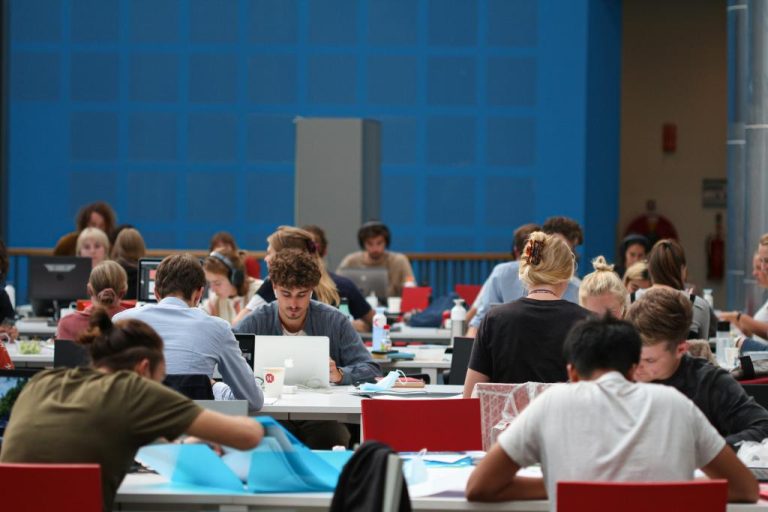IDE drops cap on student numbers
As of academic year 2024-2025, Industrial Design Engineering (IDE) will scrap the numerus fixus (cap on student numbers) for its bachelor’s programme after 13 years. The Faculty announced this on 9 March. The fixus of a maximum of 330 first-year students served as an ‘unwanted emergency brake’, says dean Caspar Chorus in a message on the intranet. (Continue reading under the photo)

The Faculty has seen the number of applications decline in recent years. (Photo: Justyna Botor)
In recent years, IDE simply could not handle more freshmen than 330, but that is going to change due to extra investments in staff and teaching capacity. IDE can invest extra because of the so-called Van Rijn funds, the Quality funds and the upcoming Sector Plan funds. Letting go of the fixus is exciting, Chorus acknowledges, but he says he is confident that with flexibility and blended learning (a mix of online and on-campus forms of education) any large influx of first-years can be absorbed.
It is the question, however, whether there will be such a large influx. The Faculty has seen the number of applications decline in recent years. This academic year, for example, only 258 students have started the bachelor of industrial design engineering. (reference date December 2022). For next academic year, IDE also expects fewer than 330 first-year students.
In the intranet message, Chorus wonders whether the Faculty did not cause this decline itself with its selection procedure. After all, selection takes place in the same period as the final exams. Moreover, it is known (in Dutch) that selection can disadvantage or put off groups of young people, for instance because they are the first in the family to think about studying. Chorus therefore hopes to attract more and more diverse students by scrapping the student cap. (SB)


Comments are closed.